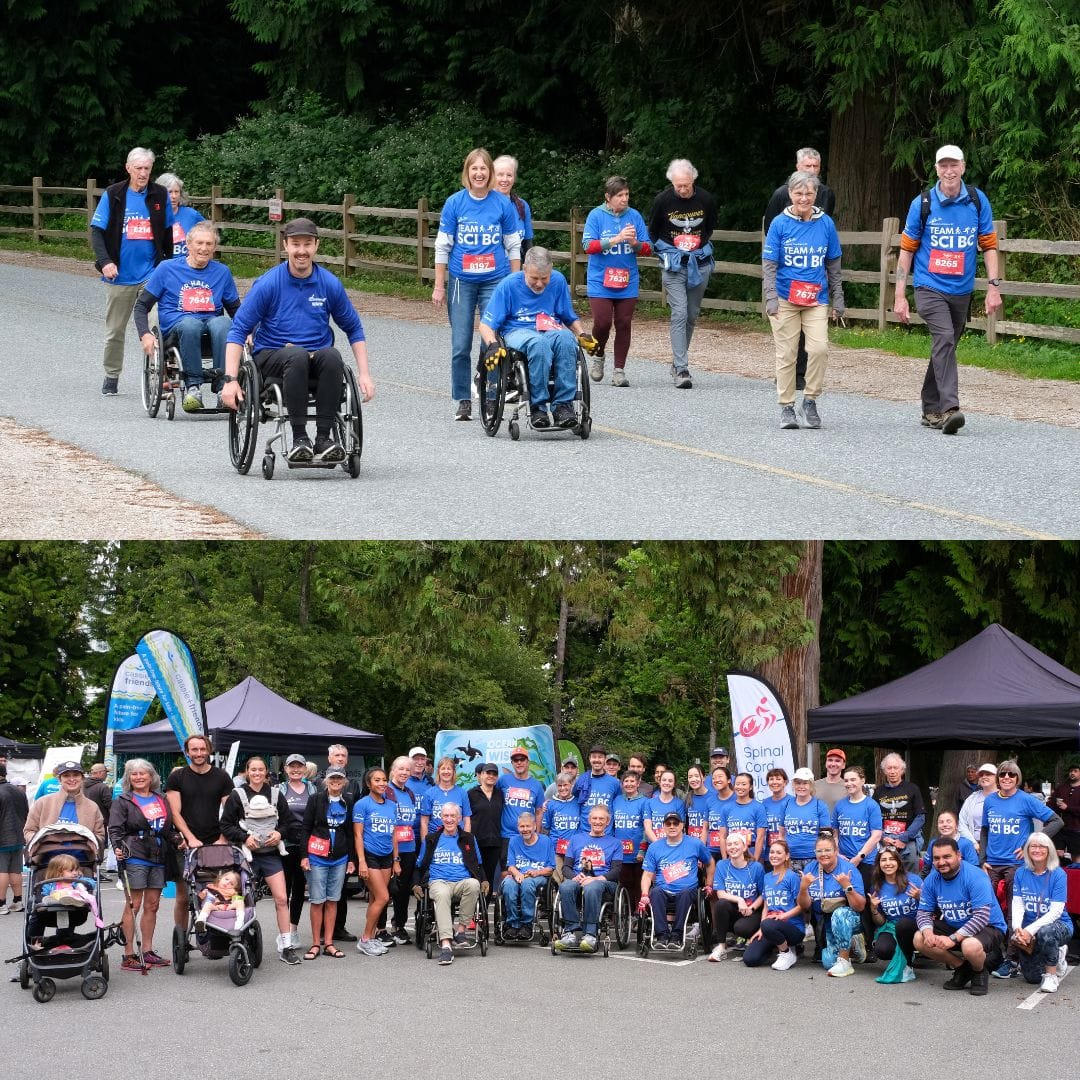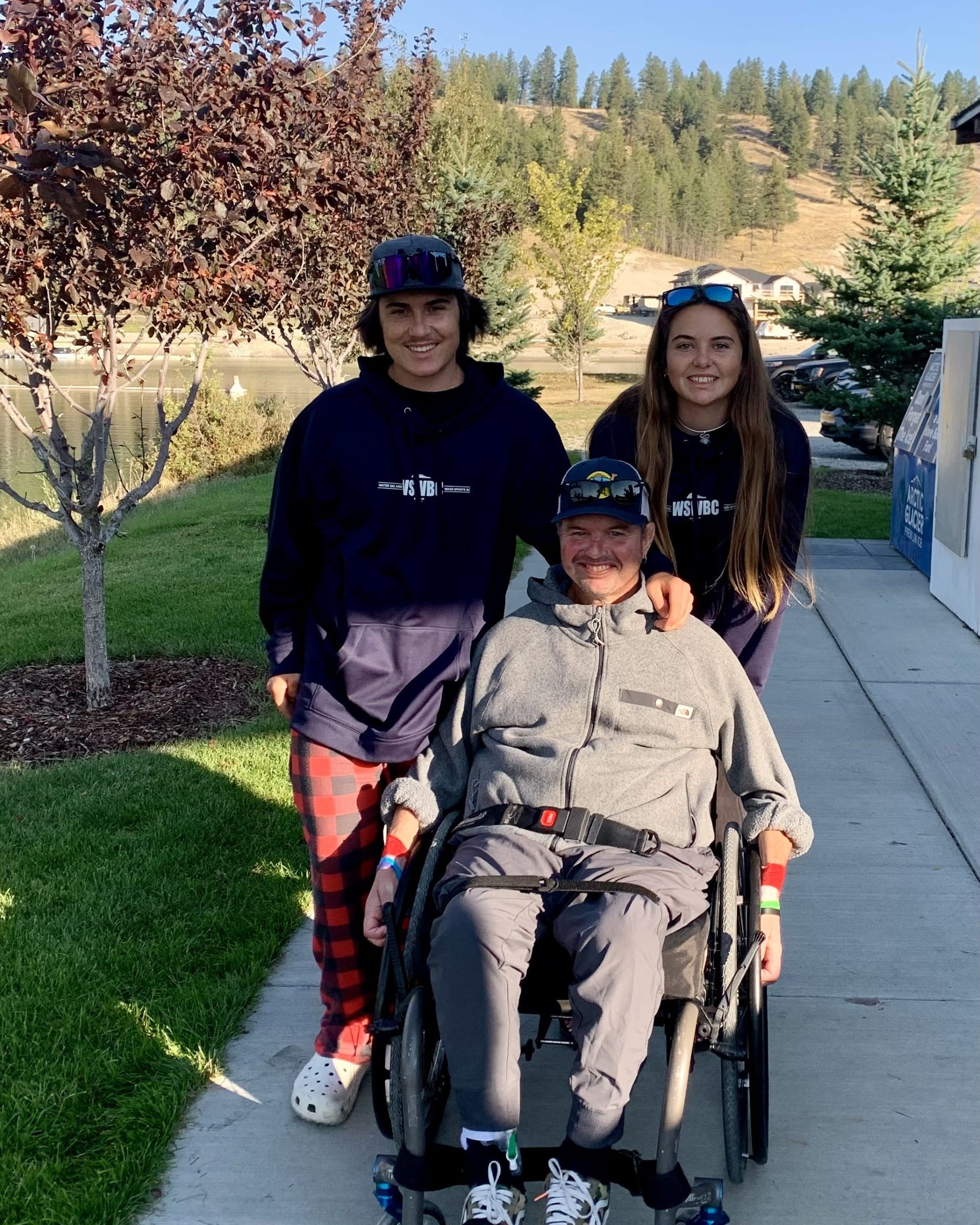Big news: a woman’s ability to get pregnant after an injury is about the same as before. But finding information about pregnancy with SCI can still be a challenge. Our SCI BC Peer, women’s health advocate, and mom, Karen Hodge, shares what they didn’t mention during her preconception consultation—and what she thinks women with disabilities as well as health professionals should know.
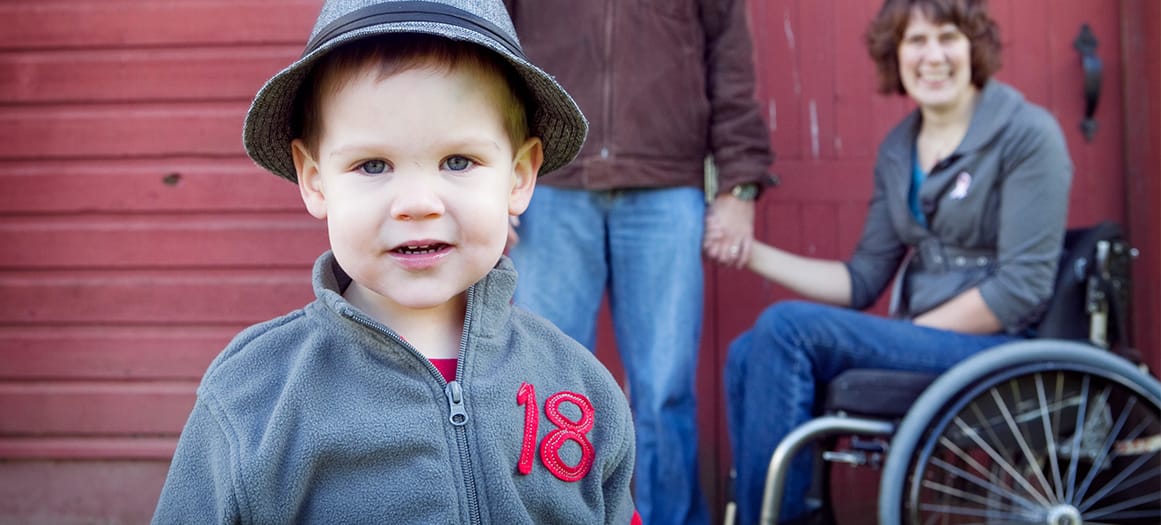
1. It’s okay to ask for help.
If you start out being fiercely independent prior to pregnancy, be prepared to accept assistance from others as your pregnancy progresses. Everyday activities become more challenging as your grow bigger and it is okay to ask for and accept help from others.
2. Don’t take people’s comments personally.
Many people will make comments about how difficult it is going to be for you to care for a child while using a wheelchair. What helped me was to remind myself that these same people are often also surprised that I live independently, have a career, have a fiancé, etc. Know that you will find a way to adapt things to make them work for you.
3. Enjoy your pregnancy.
I wish I had worried less and enjoyed the experience more along the way.
4. Be ready to adapt your transfer techniques as you grow.
To avoid falls, slow down and pay attention to your changing balance needs as your centre of gravity seems to change daily.
5. Transfers in the bathroom are especially challenging.
Consider renting or purchasing adapted bathroom aids, like a tub bench or raised toilet seat, to reduce risks and make things easier. I broke our toilet seat at least twice during my pregnancy and had a number of close calls getting in and out of the shower until we got the bench!
6. Mind the furniture.
Consider raising your couch and bed up to the level of your chair to make transfers easier. It may look like they are levitating but it will make a huge difference, especially when you are tired at the end of the day.
7. Rethink the way you drive.
You will get mixed messages on if it is safe to lift your chair in and out of the car. Consider purchasing a van, using public transit, or accepting the help of friends/family. Especially in the third trimester.
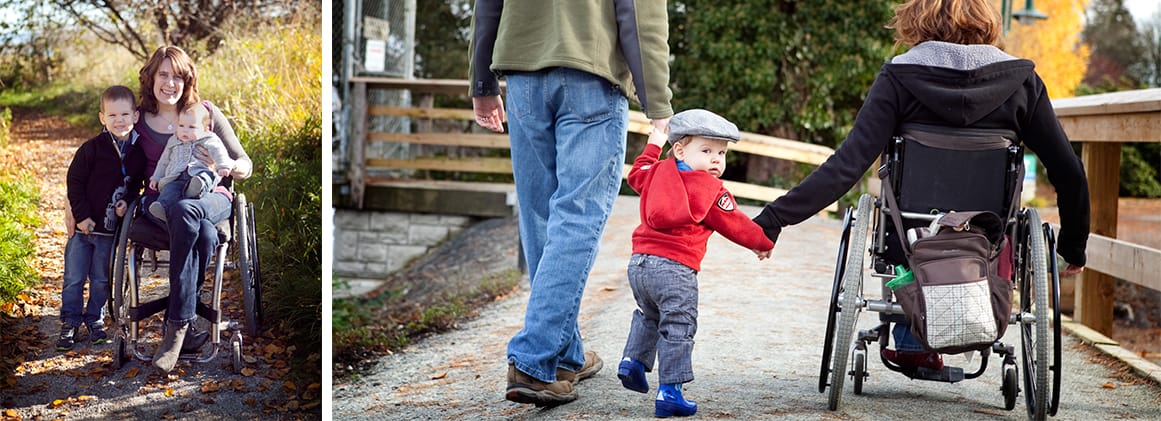
8. Hills become more difficult as your belly grows.
Slopes that were never an issue require new effort with a pregnant tummy since you’re unable to lean forward to gain momentum and to maintain balance. Consider getting anti-tip bars or be prepared to ask for assistance on hills. You may also want to consider the rental or purchase of a power wheelchair for mobility in the community.
9. Stock up on supplies.
Plan to go through at least twice as many medical supplies each week if you do self-catheterizations as your bladder gets more squished as the baby gets bigger and bathroom trips become super frequent.
10. Before you try to conceive, consult with your doctor to determine if the medications you are on are safe in pregnancy.
I was fortunate and was able to tolerate going off all my medications about 8-12 months prior to becoming pregnant. Note: I say tolerate as my spasms increased drastically, making it challenging to sleep and sit comfortably in my chair. For me, it was worth the discomfort to know that I was not taking any medications leading up to or during pregnancy.
If your medications are deemed unsafe in pregnancy, discuss with your doctor possible safe alternatives or the risks versus benefits of staying on your current medications. Everyone needs to make an individual choice as to what level of risk they are willing to take and what will work best for their bodies and the baby.
11. And, oh, those stockings!
If you are advised to wear compression stockings due to circulation concerns, be prepared for the fact that they are a workout to get on (and sometimes off!) each day. They are also really warm if you have to wear them during the summer months.
12. Seek out as much information as you can—but also listen to your body.
Unfortunately, there is not a lot of research out there about women with disabilities and pregnancy. Often the answer to questions about worries or complications will be, “We aren’t really sure” or “Not enough research has been done…”
13. Be prepared to stop working earlier than you had planned.
I had hoped to work as long as possible but eventually realized that my body was telling me this was not in the best interest of my little one. Again, remember to listen to your body. (It took me awhile to figure this one out!)

14. Begin early to look into what baby equipment is going to work best for you and what options are available to adapt items.
The Tetra Society may be a useful resource for help adapting items.
15. Find a prenatal class that fits your needs.
I was initially worried about finding a prenatal class that would be a fit for my needs, as I recognized that my pregnancy was a bit more complicated than average. Talk with the instructor before signing up for a class to ensure the material covered in the class will be a fit for your needs—and to ensure the instructor is comfortable with you attending. Things you may need to adapt or try at home rather than in the classroom setting include figuring our labour positions that will work for you and your support person, baby equipment, feeding positions, etc.
16. Surround yourself with supportive people.
Ensure the professionals on your medical team—OB/GYN, RNs, Occupational Therapist, Physiotherapist—are familiar with pregnancy and women with disabilities, and are supportive of your choice to become a mother. They will then be able to be there to answer questions, provide encouragement, provide reassurance, etc throughout your pregnancy experience.
17. Don’t be hard on yourself if you are unable to breastfeed.
You may wish to consult your care team about whether breastfeeding is possible given the level of SCI and to explore appropriate support services: physiatrists, lactation consultants, post-partum doulas, or other moms with SCI. Above all, don’t be hard on yourself if you are unable to breastfeed. Regardless of feeding method, talk to your support team about options available to continue to encourage a positive feeding and bonding experience, such as skin-to-skin contact, eye contact while feeding, use of a supplemental feeding system, or holding your baby in a position similar to breastfeeding when bottle feeding.
18. Again, it’s okay to ask for help.
Women with SCI are thought to be at higher risk for postpartum depression and/or anxiety. Signs include strong negative thoughts or feelings (i.e. sadness, anger, worry, guilt), withdrawing from friends and family, loss of appetite, difficulty bonding with your baby, feeling completely overwhelmed and unable to cope. If you find that you or a loved one are experiencing these feelings—don’t be afraid to seek help!
These symptoms will go away for some women with time; for others, they won’t go away on their own. Talk to your doctor, nurse, nurse practitioner or midwife about getting help. Community programs such as the Pacific Post Partum Support Society can also be a great resource and offer telephone and support group opportunities. Treatment and counseling can help to relieve these feelings. Always remember: You are not alone!
There are always more things to ad! But it’s comforting to realize that a lot of the things you are experiencing during your pregnancy—heartburn, balance changes, sleep challenges—are not unique to being pregnant and having a spinal cord injury. All pregnant women need to adjust to their changing bodies and to the discomforts of having a baby growing inside a very confined space! Like all things in life, things might be slightly different due to your unique needs—but know that you will be able to find a way to adapt things to make it work for you!
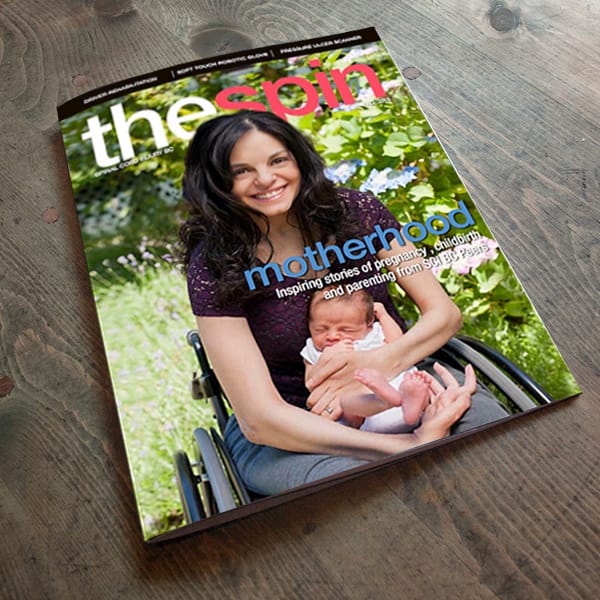
Want more pregnancy tips and tricks from other moms with SCI? Read our Fall 2015 issue of The Spin magazine for firsthand pregnancy and motherhood stories from our SCI BC Peers!
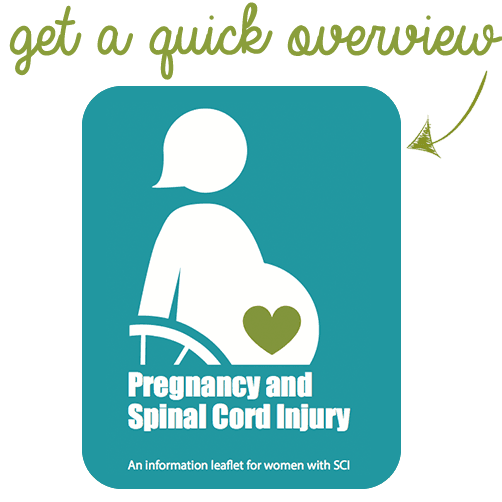
Visit our SCI Sexual Health website for information that will take you from pre-conception, through labour and delivery, and until after your baby is born.
